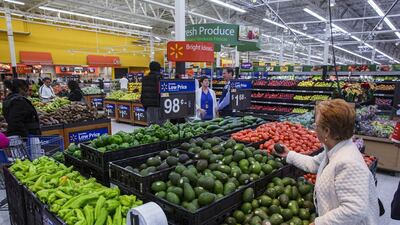Why are family firms so widespread?
Family firms represent 90 per cent of the world’s businesses, but with the exception of occasional behemoths such as the Waltons (Walmart) or the Murdochs (News Corp), they are mostly small enterprises. One of the GCC’s distinguishing traits is the prevalence of family-owned conglomerates, with family businesses accounting for up to 80 per cent of non-oil GDP. Why do family firms continue to play such an important role in the global economy?
The modern incarnation of economics coincided with the industrial revolution, a period of unprecedented economic growth, driven by the rise of joint stock companies owned by spatially dispersed capitalists, unbound by blood ties. Perhaps for this reason, economists have traditionally paid little attention to family firms. However, in the past 20 years scholars such as Marianne Bertrand (University of Chicago) and Antoinette Schoar (MIT) have been paying more attention to family firms, including those outside the West, and have greatly enhanced our understanding of how they function.
A key purported operational advantage of family firms is that they are inherently more long-term in their outlook than widely held corporations, because the current ownership generation in a family business has much stronger ties to future generations. The 2008 global financial crisis exposed alarming levels of myopia in the financial sector, potentially explaining the success of perennial financial monolith Rothschilds, one of the most famous family conglomerates. In fact, during the company’s ascent circa 1800, its founder stipulated that family members were to marry first or second cousins to reinforce the commitment among kinsman.
An additional benefit associated with family firms is that the trust between family members holding executive authority can substitute for weak contract enforcement by the government, a serious concern in many developing countries, where embezzling managers can more easily evade legal sanctions. The value of this advantage is accentuated during periods of expansion into new territories, when the costs of monitoring the management team charged with expanding operations are elevated; assigning responsibility to trustworthy offspring frees up managerial oversight resources for core tasks. While the GCC courts enforce contracts impartially, businesses sometimes complain that the legal process is slow, reinforcing the attractiveness of hiring kinsmen for important positions within the company.
Families’ trust networks also extend beyond the confines of the company. The presence of family members in key partner organisations, such as suppliers or various governmental organisations that regulate the private sector, can confer additional commercial benefits upon family firms. The comparative long-sightedness of family businesses is a key driver of this advantage, as it facilitates the establishment of long-term, reciprocal links between different stakeholders. In the GCC, social gatherings such as weddings and funerals operate as de facto forums for the establishment and maintenance of such relationships.
In addition to exhibiting enhanced levels of trust, families are also characterised by homogeneity in their abilities; both due to nature (the genetic heritability of managerial skills) and nurture (good managers tend to raise good managers). Beyond this, the shared values of a common upbringing can contribute to higher levels of cooperation and understanding between family members working together in the same company, resulting in a performance advantage compared to conventional organisations.
In practice, however, blood relations are a double-edged sword, as the sometimes bitter feuds that erupt between brothers or cousins can lead to the impairment or dissolution of profitable enterprises for non-commercial reasons. This “personalisation” of disputes is a key reason why consultants advising family firms emphasise the need to separate ownership from control. Conferences designed to preemptively tackle such problems are common in the Arabian Gulf.
Family firms also risk nepotistic decision-making, resulting in the appointment of incompetent kinsmen to important positions. These risks are accentuated in the GCC by the importance of family to day-to-day life, as the western, secular option of walking away from one’s relatives is unavailable. More generally, within family firms in the GCC and beyond, business is never just business.
We welcome economics questions from our readers via email (omar@omar.ec) or tweet (@omareconomics).
Follow The National's Business section on Twitter


